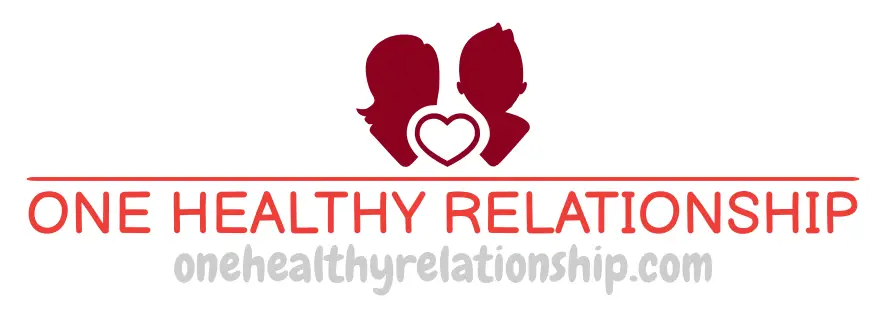Signs of Healthy Communication in a Relationship
Active Listening: Key to Understanding
Active listening is like the secret sauce of communication in relationships. It’s like when you’re at a party and someone is telling you a story about their cat’s latest antics, and instead of nodding along mindlessly, you actually tune in and ask questions like, ‘Did Mr. Whiskers really eat your homework?’ That’s the kind of engagement that shows you care and want to understand. Plus, it’s a great way to avoid those awkward moments when you realize you’ve been nodding along to a story about a cat that doesn’t even exist. So, next time your partner is rambling on about their day, put down your phone and show them you’re all ears. It might just save you from a cat-astrophe.
Open and Honest Communication
One behavior that indicates healthy communication in a relationship is active listening. This means truly listening to your partner without interrupting, showing empathy, and asking clarifying questions to ensure understanding. Active listening helps to foster trust, respect, and understanding in a relationship, leading to stronger communication overall.
Open and honest communication is like the GPS of relationships – it keeps you on the right track and helps you avoid getting lost in misunderstandings. It’s like when you accidentally eat the last slice of pizza and instead of pretending it never existed, you fess up and offer to order more. That level of transparency shows that you value honesty and respect in the relationship. Plus, it’s a great way to prevent those awkward moments when you both reach for the nonexistent last slice. So, next time you’re tempted to hide the truth, remember that honesty is the best policy, especially when it comes to pizza.
Respectful Conflict Resolution Strategies

Respectful conflict resolution strategies are like the superhero capes of relationships – they swoop in to save the day when tensions are running high. It’s like when you and your partner are arguing about whose turn it is to do the dishes, and instead of resorting to name-calling or door slamming, you take a deep breath and calmly express your feelings. That kind of approach shows that you value respect and are willing to work through disagreements in a mature and constructive way. Plus, it’s a great way to prevent those heated arguments from escalating into full-blown kitchen warfare. So, next time you find yourselves at odds, remember that a little respect can go a long way in finding a peaceful resolution.
Another key behavior that indicates healthy communication in a relationship is active listening during conflicts. When you and your partner are in the midst of a disagreement, it’s crucial to truly listen to each other’s perspectives without interrupting or dismissing their feelings. By actively listening, you show that you value their thoughts and emotions, even if you don’t necessarily agree with them. This not only helps to de-escalate the conflict but also fosters a sense of understanding and empathy between both parties. So, next time you’re tempted to jump in with a rebuttal, take a moment to listen and truly hear what your partner is saying.
In addition to active listening, using ‘I’ statements can also be a powerful tool in respectful conflict resolution. Instead of pointing fingers and placing blame, try expressing your feelings and thoughts using phrases like ‘I feel’ or ‘I think.’ This approach helps to take ownership of your emotions and perspectives without coming across as accusatory or confrontational. By using ‘I’ statements, you can communicate your needs and concerns in a way that promotes open dialogue and mutual respect. So, next time you’re in the heat of an argument, try reframing your statements with an ‘I’ focus to keep the conversation constructive and respectful.
Lastly, a crucial aspect of respectful conflict resolution is maintaining a calm and composed demeanor, even when emotions are running high. It’s easy to get swept up in the heat of the moment and let anger or frustration dictate your words and actions. However, by staying level-headed and composed, you demonstrate maturity and self-control, which can help to defuse tension and promote a more productive dialogue. So, next time you feel yourself getting worked up during a conflict, take a deep breath, count to ten, and approach the situation with a cool head. Your relationship will thank you for it.
Empathy and Emotional Support
Using ‘I’ statements instead of ‘you’ statements is a sign of healthy communication in a relationship. This shows that each person is taking responsibility for their own feelings and thoughts, rather than blaming or accusing the other person.
Empathy and emotional support are like the cozy blankets of relationships – they wrap you up in warmth and understanding when you’re feeling vulnerable. It’s like when your partner has had a rough day at work and instead of offering unsolicited advice or trying to fix everything, you simply sit with them, listen, and offer a comforting hug. This kind of empathetic response shows that you care about their well-being and are there to support them through thick and thin. Plus, it’s a great way to foster a sense of emotional connection and trust in the relationship. So, next time your partner is feeling down, remember that sometimes all they need is a listening ear and a shoulder to lean on.







